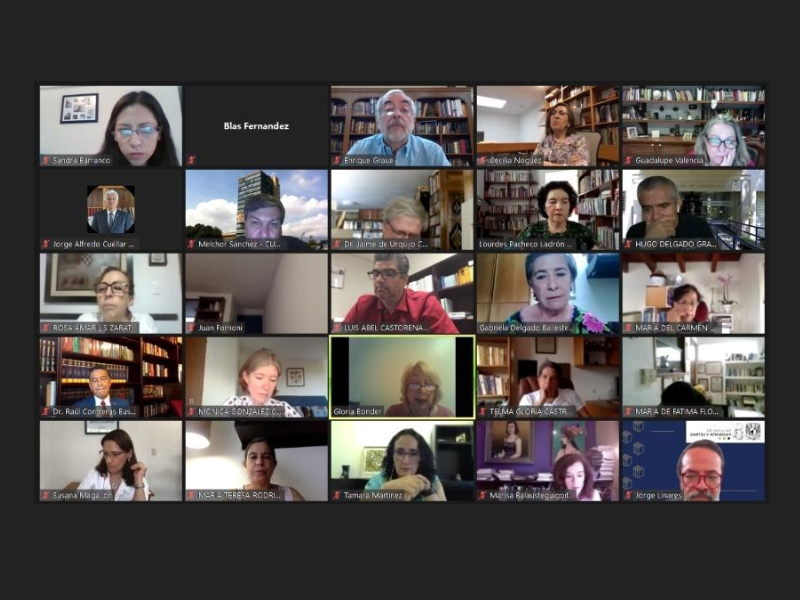Her presentation provided an overview of the background to the formulation of gender equality plans and policies in Latin American universities, beginning with the production and analysis of statistical data showing the differences between women and men in student enrolment, teaching staff and decision-making positions. This phase was aimed at stimulating the inclusion of women and achieving numerical parity. Based on this, numerous studies and proposals have been made based on the gender approach to interpret this phenomenon and, therefore, call for more profound changes. In particular, the social representations of the different university careers; the understanding of the particular conditions faced by women to develop their studies and exercise their professions due to maternity and the social delegation of care tasks to them and other critical issues such as violence and harassment in university and work spaces. In short, the persistence of institutional cultures that reproduce – explicitly and implicitly – gender biases and stereotypes that are in force in societies, which affect the full development of women’s capacities under conditions of equality.
The presentation showed that the recognition of these problems has led to institutional responses that differ in their interpretation of gender inequality in academic circles and, therefore, assume different degrees of institutional responsibility (from specific, one-off actions to institutionalized plans and policies aimed at structural change). She also referred to the conditions of the economic, social and political context that contributed to the critical analysis of rights and gender equality/equity in these institutions.
She placed particular emphasis on analysing and taking into consideration the resistance that this process of change very often arouses in institutions that privilege the status quo and the meritocratic order. She proposed a road map, based on the lessons learned from universities in Al and other regions, to create and put into action plans and policies for gender equality that take into account the characteristics of institutional and country contexts.
Finally, she shared the experience of the European Union’s ACTonGender project and, in particular, the progress made by its focal point for Latin America and the Caribbean, coordinated by the UNESCO Regional Chair for Women, Science and Technology in Latin America. Based on this presentation, a productive exchange was generated that provides guidelines and proposals for strengthening the work of numerous institutions that are implementing initiatives to achieve gender equality in the university and research spheres.




